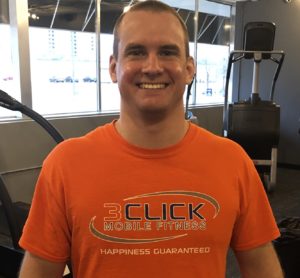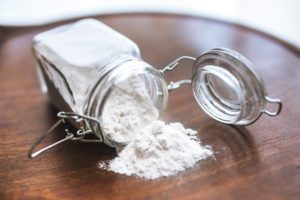By Chris Golv, NASM Certified Personal Trainer, Strongfirst L1 Kettlebell Instructor, A.S. Personal Training
Understanding how to make food work in your favor can have amazing effects on energy levels, workout enjoyment, and results. All of these play a role in staying consistent with your workouts and ultimately your health goals. Below are outlined some guidelines for pre workout nutrition fueling, post workout recovery, and how supplements can fit into the equation.
PRE WORKOUT FUELING
To understand how to properly fuel your workouts we must consider a few things. Time of day, workout intensity, and how your body responds to certain foods.
Time of day is important when considering that we have been fasting while we have been sleeping. This makes morning workout fueling far more important than afternoon or evening workouts. Chances are we have eaten one or two meals, so our body probably doesn’t need too much when it comes to energy for afternoon or evening workouts. A morning workout however should not be done fasted under most circumstances. Eating an easily digestible carbohydrate and a little protein can make all the difference.
Workout intensity can also dictate fueling needs. This may seem rather common sense, but a H.I.I.T. (High intensity interval training) session or 10 mile run require more energy than what your body is normally taking in food wise day to day. Surround those workouts with your daily carbohydrates, and be sure to get some protein afterward for muscle recovery. If you are not working out that intensely a quick snack or perhaps nothing at all if you have recently eaten a meal will be enough.
Knowing what foods affect your body during exercise can really help increase the quality of your workouts. Experiment with which carbohydrate sources you respond to well. Also know which foods don’t agree with you, such a dairy, and avoid those before getting into your training for the day.
POST WORKOUT RECOVERY
Once the workout is done, it is important to have a recovery plan to get the most out of the activity that you just did. This will aid in adaptations in the muscular and nervous system (aka results) and help get your body ready for the next workout. Timing plays a big role in this post workout recovery phase. While working out, you have used up mostly a carbohydrate stored in your muscles called glycogen. Your glycogen stores need to be replenished to help you recover and get ready for your next training session. Carbohydrate sources post workout can be more complex than your pre workout carbs.
Of course we all know that protein is the macronutrient most responsible for muscle building and muscle recovery. After a hard workout, protein intake plays a vital role in rebuilding the broken down muscle to not only grow and get stronger, but to recover and be ready to be worked again in your next session.
SUPPLEMENTS
People are always looking for the magic supplement that will speed up results. Unfortunately supplements are exactly that, a supplement. Great nutrition starts with real food, and only when you feel that isn’t enough should supplements be considered. Even if you are eating a well balanced diet, there might be a deficiency. Tracking your food intake is vital here to know if you are reaching your macronutrient, vitamin and mineral goals. I will give my opinion on a few popular supplement types.
The most common supplement I get asked about is protein powder, and I would venture a guess that it is the most popular supplement on the market today. I have used protein on and off for many years. I like the convenience of mixing a shake for an easy snack, and I can take the powder anywhere to mix with water when I need it. Again, I always recommend getting as much protein from whole food sources, but adding a protein powder for a quick post workout snack can have some benefit.
The second most common supplement I get asked about is “pre-workout”. Pre-workout powder is usually made up of a mix of stimulants and micronutrients with the idea that you will get more energy and better output for your workout. A couple things to consider if you want to take a pre-workout. Most of us (including me) are already taking in caffeine at the beginning or throughout much of the day, so adding more stimulants to that mix might not be a great idea. Another idea I like to bring up with my clients is the idea of functional carryover with your workouts. Workouts should make us better for everyday life, and if a cocktail of stimulants and nutrients are needed every time you want to physically exert yourself, is that functional? Some people don’t care, and like the way pre-workout makes them feel while working out, and if that keeps you consistent with your workouts, then maybe it is worth it.
Do some research to see if supplements are worth the money for you, and be ready to experiment with different kinds to see what is going to work with your body the best.
The better we can track and use food to our favor when it comes to working out, the happier we are and the more likely we are to stick to our fitness goals and see results!



